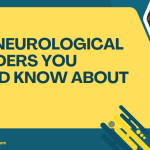Table of Contents
- Introduction
- 1. Changes in Memory
- 2. Difficulty with Coordination
- 3. Persistent Headaches
- 4. Changes in Mood or Behavior
- 5. Numbness or Tingling Sensations
- 6. Seizures
- 7. Vision Problems
- Conclusion
- FAQs
Introduction
Understanding the early signs of neurological disorders is crucial for timely intervention and treatment. The nervous system is complex, and its disorders can manifest in various ways, often leading to significant challenges in daily life. In this blog, we’ll explore the top seven early signs of neurological disorders that everyone should be aware of. Recognizing these symptoms early can make a substantial difference in outcomes.
1. Changes in Memory
Memory issues are often one of the first signs that something might be wrong with your nervous system. This could range from occasional forgetfulness to more severe memory loss that interferes with daily activities. Early-stage cognitive decline can be caused by various neurological disorders, including Alzheimer’s disease and frontotemporal dementia.
What to Watch For:
- Forgetting recent conversations or events
- Difficulty recalling familiar names or places
- Misplacing items frequently
Early diagnosis can provide more treatment options, so don’t delay consulting a healthcare professional if you notice these signs.
If you notice these signs persistently, it’s a good idea to consult a healthcare professional. For further insights, check out Top 5 Essential Insights on Neuro Care You Need to Know.
2. Difficulty with Coordination
Are you finding it harder to perform tasks that require coordination? This could include activities like writing, buttoning a shirt, or even walking. Disorders such as Parkinson’s disease or cerebellar ataxia affect motor skills and coordination.
Symptoms to Note:
- Clumsiness or frequent stumbling
- Difficulty maintaining balance
- Trouble with hand-eye coordination
If these issues seem to arise suddenly or worsen over time, don’t hesitate to seek medical advice.
If these issues seem to arise suddenly or worsen over time, don’t hesitate to seek medical advice.
3. Persistent Headaches
While headaches are common and can arise from various causes, persistent or severe headaches should not be ignored. They may indicate conditions such as migraines, tension-type headaches, or even more severe issues like a brain tumor or aneurysm.
When to Be Concerned:
- Headaches that disrupt your daily life
- Changes in headache patterns
- Accompanying symptoms such as nausea, visual disturbances, or confusion
Keeping a headache diary can help you track their frequency and severity, which is valuable information to share with your healthcare provider.
Keep a headache diary to track their frequency and severity, and discuss this with your healthcare provider. For further information, refer to Top 5 Emergency Neuro Care Tips When Every Second Counts.
4. Changes in Mood or Behavior
If you or someone close to you is experiencing noticeable changes in mood or behavior, it might be a sign of an underlying neurological condition. Disorders like depression, bipolar disorder, or even early signs of dementia can significantly affect emotional well-being.
Signs to Consider:
- Increased irritability or agitation
- Withdrawal from social activities
- Significant changes in sleep patterns or appetite
Understanding these changes can help in seeking appropriate help, whether through therapy, medication, or lifestyle changes.
Understanding these changes can help in seeking appropriate help, whether through therapy, medication, or lifestyle changes. For more insights, see Top 5 Myths About Neuro Care Debunked.
5. Numbness or Tingling Sensations
Numbness or tingling, often referred to as “pins and needles,” can be an early warning sign of neurological issues. Conditions such as multiple sclerosis, peripheral neuropathy, or even vitamin deficiencies can lead to these sensations.
Key Indicators:
- Numbness that lasts longer than a few minutes
- Tingling that occurs in specific body parts
- The sensation occurs without an obvious cause
If you experience these symptoms regularly, it’s important to reach out to a healthcare professional for an evaluation.
If you experience these symptoms regularly, it’s important to reach out to a healthcare professional for an evaluation. For a deeper understanding, check Top 5 Common Nervous System Disorders Explained.
6. Seizures
Seizures can be a significant indicator of neurological disorders, including epilepsy and other brain conditions. They can manifest in various ways, from brief lapses in awareness to violent convulsions.
Signs of Seizures:
- Uncontrollable shaking or jerking
- Staring spells
- Confusion or disorientation post-seizure
If you or someone you know experiences a seizure, it’s crucial to seek medical attention immediately to determine the underlying cause.
If you or someone you know experiences a seizure, it’s crucial to seek medical attention immediately to determine the underlying cause. For more detailed information on seizure disorders, visit Neuro Care: A Guide to Brain Health.
7. Vision Problems
Vision issues can be an alarming early sign of neurological disorders. Conditions like optic neuritis (often associated with multiple sclerosis) can cause blurred or double vision and should not be ignored.
Symptoms to Watch For:
- Sudden vision changes
- Difficulty in seeing colors
- Blurriness or dark spots in vision
Consulting an eye specialist or neurologist is vital if you experience sudden vision changes.
If you experience these symptoms, especially if they occur suddenly, it’s vital to consult an eye specialist or neurologist. For comprehensive information, check Top 5 Diagnostic Tests for Nervous System Disorders.
Conclusion
Recognizing the early signs of neurological disorders is essential for timely intervention and effective treatment. If you or a loved one experiences any of the symptoms mentioned above, consider consulting a healthcare professional. Early diagnosis can lead to better management of symptoms and improved quality of life. Also, explore Top 5 Benefits of Early Intervention in Neuro Care for additional insights.
FAQs
1. What should I do if I notice these signs in myself or a loved one?
Consult a healthcare professional as soon as possible. Early intervention can make a significant difference.
2. Are all neurological disorders serious?
Not all neurological disorders are life-threatening, but many can significantly impact quality of life. Early diagnosis is essential for effective management.
3. Can lifestyle changes help prevent neurological disorders?
While not all neurological disorders can be prevented, maintaining a healthy lifestyle—including a balanced diet, regular exercise, and mental stimulation—can support brain health.
4. How are neurological disorders diagnosed?
Diagnosis typically involves a combination of patient history, neurological exams, imaging tests (like MRI), and sometimes lab tests.
For more detailed information on neurological disorders, visit the National Institute of Neurological Disorders and Stroke.





